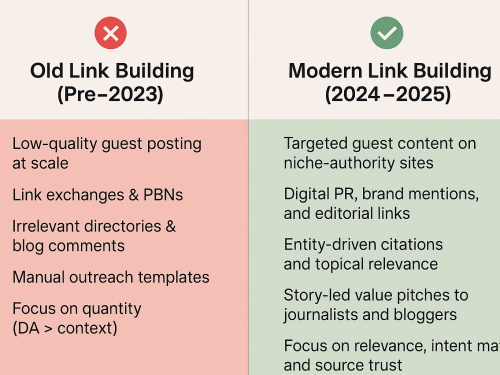
Voice search transforms how consumers interact with e-commerce platforms, providing a faster, more convenient way to search for products, get recommendations, and even complete purchases.
With devices like Google Assistant, Alexa, and Siri becoming household staples, the shift toward voice search ecommerce is accelerating. For online businesses, optimizing for voice search is no longer optional—it’s essential to remain competitive in a voice-first world.
According to recent studies, over 20% of mobile queries are voice-based, and e-commerce platforms that optimize for voice search can see a significant boost in traffic and engagement.
But how does voice search affect ecommerce SEO, and what actions should businesses take to reach this rising audience?
In this guide, we’ll explore how to optimize for voice search, covering everything from keywords and content to technical SEO and user experience.
Understanding Voice Search Ecommerce SEO: What’s Different from Traditional SEO?
Voice search adds a new layer to SEO, requiring a unique approach to ensure visibility and relevance in search results. Let’s dive into the key differences and what they mean for e-commerce.
Natural Language Processing (NLP) and Long-tail Keywords
Voice search queries are conversational, often taking the form of questions or full phrases. Unlike traditional searches, which might use keywords like “running shoes,” voice queries are more likely to sound like, “Where can I find the best running shoes near me?”
To capture these searches, prioritize long-tail keywords and phrases that mimic natural language, as this aligns closely with the way people speak to devices.
User Intent and Voice Search Queries
In voice search, user intent is critical. When consumers ask specific questions, they often have a strong intent, whether informational (“What’s the best camera for beginners?”) or transactional (“Order a new phone charger”).
Optimizing for intent requires structuring content around common questions and needs and positioning your e-commerce site as a trusted source for quick, accurate answers.
Local SEO in Voice Search
Local searches make up a significant portion of voice queries, especially with terms like “near me” or “closest.” Local SEO is critical for businesses that have physical locations.
To rank well in local voice searches, include local keywords, enhance your Google My Business listing, and ensure NAP (Name, Address, Phone number) consistency across platforms.
How to Optimize for Voice Search: Essential Strategies for Ecommerce Success

E-commerce sites need to implement strategic SEO practices that cater to voice-activated search behavior to leverage voice search. Here’s a step-by-step guide to voice search optimization.
1. Keyword Research for Voice Search Optimization
Start with comprehensive keyword research, focusing on conversational and question-based queries.
Tools like AnswerThePublic and Google’s People Also Ask feature can help identify common questions about your products or services. Integrating these question-based keywords throughout your content will make it more relevant to voice searches.
2. Schema Markup and Structured Data
One effective strategy to increase exposure in voice search results is to use schema markup. Because structured data provides search engines with comprehensive information about your website, it is more likely to show up in answer boxes and rich snippets.
For e-commerce, prioritize schemas like Product, Review, Price, and Availability. These types of schemas provide valuable data that devices use to generate voice responses.
3. Improving Mobile Responsiveness and Page Speed
Most voice searches are hit from mobile devices, so your site must be mobile-friendly. Optimize for mobile by ensuring fast loading times, responsive design, and streamlined navigation.
Google’s Mobile-Friendly Test tool can help you evaluate your site’s mobile performance and identify areas for improvement.
4. Optimizing Content for Voice Search Queries
Content optimized for voice search should focus on answering questions quickly and effectively.
An FAQ section is an excellent way to achieve this, allowing you to cover commonly asked questions in a concise, easy-to-navigate format. Keep answers brief (40–50 words), as voice assistants often pull from shorter, direct responses.
Enhancing User Experience with Voice Search on Your Ecommerce Site
Implementing voice-activated shopping features and improving user experience are key steps in making your site voice-search-friendly.
Voice-activated Shopping Features
Adding voice-activated shopping options enhances accessibility and convenience for users. Options include enabling voice search within your website or app, allowing customers to find products or place orders hands-free.
Platforms like Dialogflow or Alexa Skills Kit provide frameworks to develop voice-enabled features tailored to e-commerce.
Personalization with AI and Machine Learning
By leveraging AI and machine learning, businesses can create personalized shopping experiences. AI-driven assistants can analyze past purchases and browsing history to suggest products, ensuring the shopping experience is more relevant and user-friendly.
This personalization boosts user engagement, increasing the likelihood of conversions through voice search.
Ensuring Accessibility and Usability
Ensure your site’s voice search features are accessible to all users, including those with disabilities. This can include text-to-speech options for visually impaired users or simplified navigation for ease of use.
Security and Privacy Concerns with Voice Search for Business
As voice search usage grows, so do concerns about data security and privacy. Addressing these issues is crucial for establishing confidence with people.
Data Privacy in Voice Search
With voice searches, users share potentially sensitive information, so protecting that data is essential. Maintain transparency regarding data gathering procedures and ensure that client data is securely stored and managed.
Compliance with Data Protection Regulations
Adhere to data protection regulations such as GDPR or CCPA when using voice technology. Make privacy policies clear and provide users with options to opt out of data collection when possible. Ensuring compliance not only protects user data but also builds credibility for your brand.
Also Read: 7 Horrible Mistakes You are Making with Amazon Ads
Emerging Technologies and the Future of Voice Search in E-commerce
The world of voice search is rapidly evolving, and remaining on top of emerging trends will keep your e-commerce store competitive.
The Role of AR and VR in Voice-activated Shopping
As virtual reality (VR) and augmented reality (AR) continue to integrate with e-commerce, they will likely enhance the voice search experience. Imagine voice commands allowing users to virtually “try on” products or visualize items in their own space.
Future of AI-driven Personal Assistants in E-commerce

AI-driven personal assistants are becoming more sophisticated. They offer personalized product recommendations and even manage shopping lists. Brands that invest in these tools can provide a highly engaging and tailored shopping experience for voice search users.
Prepare Your Ecommerce Store for the Future of Voice Search SEO
Voice search is rapidly transforming the e-commerce landscape, and it’s only expected to grow. The brands that are now preparing will gain a competitive advantage as voice search becomes an essential shopping tool.
Being early means capturing new traffic, building deeper engagement, and increasing conversions as consumers turn to voice-activated devices for their purchases. Taking action today positions your store to thrive in the voice-first future.
At EvenDigit, we’re here to guide you through this transition. Our team will help you tailor your SEO strategy—from voice search optimization to structured data and user experience enhancements—ensuring your store is equipped to capitalize fully on this evolving trend.
Let’s connect to set up your e-commerce business for sustained growth in a voice-first world.
EvenDigit
EvenDigit is an award-winning Digital Marketing agency, a brand owned by Softude (formerly Systematix Infotech) – A CMMI Level 5 Company. Softude creates leading-edge digital transformation solutions to help domain-leading businesses and innovative startups deliver to excel.
We are a team of 70+ enthusiastic millennials who are experienced, result-driven, and hard-wired digital marketers, and that collectively makes us EvenDigit. Read More




